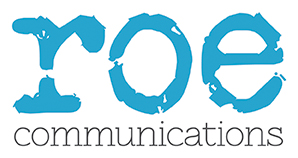Business schools are a goldmine of alumni stories for media relations activity.
At Roe Communications, we’ve pitched stories to the media about founders of exciting start-ups, alumni who are making huge policy decisions in government or public service, and people who have commercialised significant scientific or technological discoveries.
This is great news, as journalists are always looking for interesting case studies of people to illustrate their articles and bring the relevance of their story home to their readers.
But like most PR activities, in order to make it work for you, there are a few things that you need to get right first.
Here are our top tips for making the most of your alumni in media relations.
Do – ensure any activity supports your objectives
It’s very easy to get carried away when you’ve spotted a good alumni story. But even if your ex-MBA student founded a unicorn company, you still need to bring it back to your business school. When you speak to them, dig deep and find out what it is about their experience that inspired or transformed their ideas and their subsequent success.
Consider how they fit with any school-wide messages – such as increasing diversity and inclusion – or particular themes that you want to push, such as sustainability. And brief the journalist with the angle that suits you – or they will choose their own.
Don’t – make promises without assessing them first
You can’t assume that just because your alum is now a CEO that they are automatically good with the media – or that their story is newsworthy enough.
As with any media relations project, it is essential to do your research first.
Find out about their career background, via LinkedIn for instance. Do they have an unusual back-story – rags to riches, or opera singer to surgeon, for instance?
Check out their company – is it highly innovative or unusual? Does it lend itself well to images (for instance does it produce a consumer product?) Is it in a trending industry?
Review their previous media coverage – you won’t able to sell them easily into a media outlet if they’ve already covered them. Also be aware of any negative coverage – you don’t want to put them in a difficult position with a journalist who might start asking tricky questions.
Do – get the right permissions
Often, permission to speak to an alum comes via the alumni team or sometimes a programme team. Unfortunately, they don’t always ask the alum’s permission to be photographed, or provide their own photograph for media, and subsequent social media use. This is essential – and either needs to come from you or them, in writing.
When you are dealing with the journalist and briefing your alum, you need to be very clear about what questions are likely to be asked. For example, if you are speaking to an enterprise journalist about a start-up, they are likely to want to know about how much money they have raised and from which venture capital firms. If they are unwilling to provide this, it will make the story much less newsworthy for the journalist.
Don’t – forget to brief them
It’s super frustrating when you go to the trouble of setting up an alumni story and then the journalist fails to mention your business school at all. Whilst this is unlikely with a business education journalist, it’s much more so with general or news journalists.
This is not the journalist’s fault – it’s not their job to do your PR for you. And your alumni is also taking time out of a busy day and may be distracted or under time-pressure to answer (especially for TV or radio).
If your alumni is the only person being interviewed on your behalf, you need to equip them with some basic facts about your school, reminders of the programme they were on, and ask them pro-actively to talk about the benefits of their experience (where appropriate).
As far as possible, spend a bit of time with them, think about possible questions in advance and ensure that they are comfortable ahead of any interview.
Do – enhance your results on social media
A great thing about alumni stories, once published in the press, is that they perform very well on social media.
It goes without saying to share it on your main business school channels – but don’t forget that you may have dedicated alumni network channels you can also tap into.
As well as sharing on your own channels, ask your alum to share it on their personal and company channels to boost engagement and reach.
And don’t forget to recycle the story in the future. It could be, for instance, that quotes from a radio or TV interview could be transcribed into written content, or advice given by your alum could be recycled into a blog.
Don’t – be disorganised
When you’ve been pitching alumni stories for some time, it can be easy to forget which ones have and haven’t been interviewed. Keep a dated record of coverage and pitches, so that you can refer back to them in future. Of course, you will need to adhere to your own school’s policies around keeping people’s personal data or photographs.
And constantly add to your list of potentials as journalists are always looking for recent/fresh content. Add it to the agenda of regular catch-ups with alumni and programme teams and remind them of the key criteria for a good alumni story.
Keeping good records will also increase the likelihood that you can source a case study quickly for a journalist with a short deadline.
Do – thank them
Most alumni are very happy to appear in the press to talk about the positive experience they’ve had with their business school. But it’s always good to thank them for their time and increase the likelihood that they will help you again or recommend the experience to their peers!
If you would like to know more about how to get more press coverage for your business school, click HERE for more insights.

